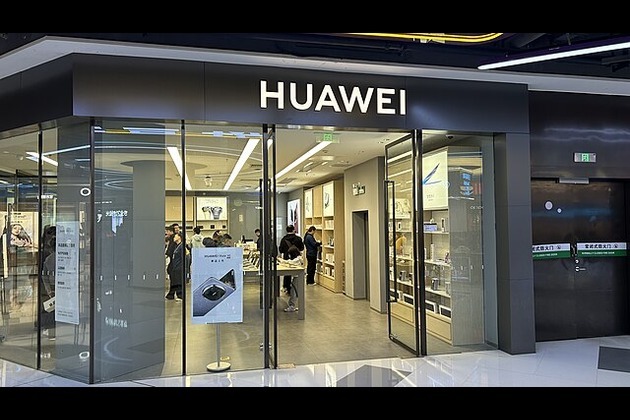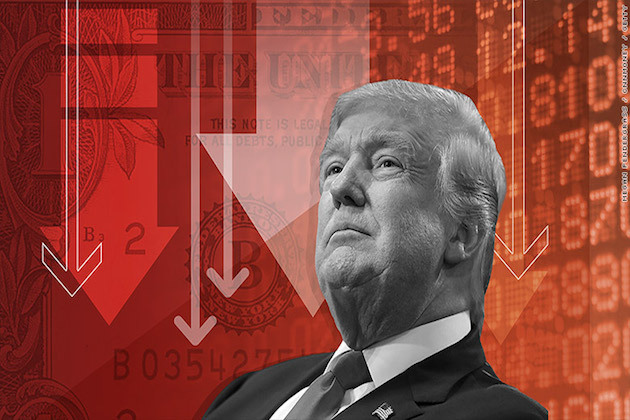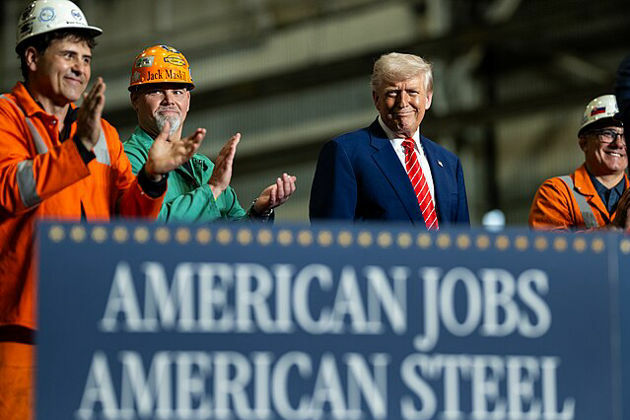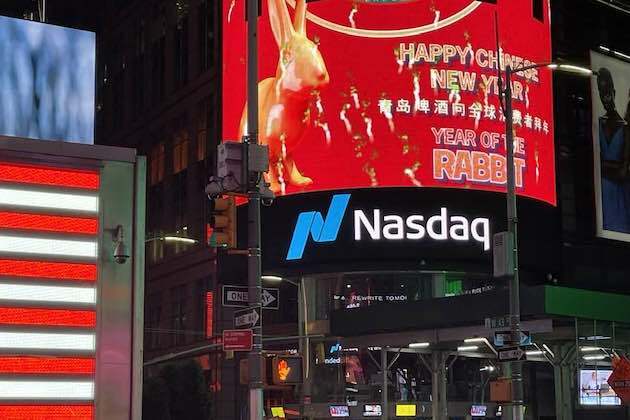Opinion Why Britain Should Back a Hong Kong Government-in-Exile
E-International Relations
18 Jun 2025, 06:19 GMT+10
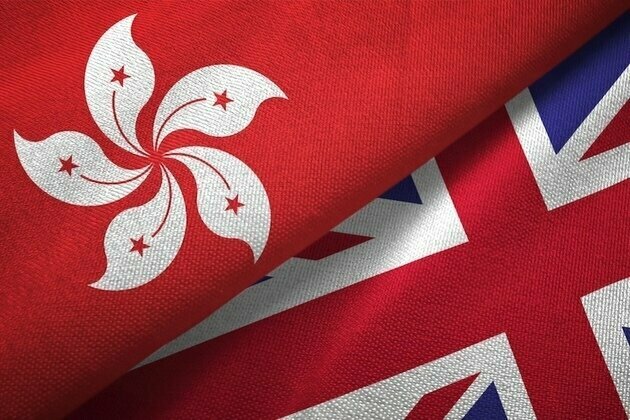
Ka Hang Wong
Download PDF
Jun 18 2025
7
viewsAleksTaurus/DepositphotosOn 30 June 2020, the Chinese government imposed a sweeping National Security Law (NSL) in Hong Kong, effectively ending the citys autonomy. The law, introduced after months of protests, severely curtailed freedoms guaranteed under the 1984Sino-British Joint Declarationthe international treaty that laid the groundwork for Hong Kongs post-handover governance. By arresting pro-democracy activists, disqualifying elected legislators, andredesigning the electoral systemto allow only patriots to govern, Beijing violated its treaty commitments. In response, the UK launched theBritish National (Overseas) visa schemein 2021, offering Hongkongers a pathway to settlement and citizenship. Over 163,000 people have alreadyrelocatedto Britain, with as many as5.4 millionpotentially eligible. While this measure offers an escape route, it leaves a deeper constitutional question unresolved: what becomes of Hong Kong s right to democratic self-governance under the Joint Declaration?
A growing movement is emerging to address this gap. A group of exiled activists calling themselves theHong Kong Parliamenthas recently held its first global election through a mobile voting app. The organisation behind the election, formed in Canada, positions itself as a nonpartisan initiative led by the Hong Kong diaspora. The project aims to represent Hongkongers forced into exile following Chinas crackdown. As former lawmaker-elect Baggio Leung explained to the South China Morning Post, the initiative wasinspired by the Tibetan parliament-in-exile, which has operated from Dharamshala, India, since 1960 with land and recognition granted by the Indian government. Though largely symbolic at this stage, the election marks a bold step toward political continuity in exile. The Tibetan precedent is crucial. TheCentral Tibetan Administration, while not officially recognised as a sovereign government, nonetheless maintains a functioning cabinet, parliament, school system, and diplomatic presence abroad. For Hongkongers facing political persecution, this model offers a possible template for democratic continuity beyond the reach of totalitarianism.
But unlike the Tibetan case, the UK holds a unique responsibility as a signatory to the Sino-British Joint Declaration. If Hongkongers are now attempting to build an exiled democratic institution in response to Chinas breach of that treaty, then the UKs silence risks undermining the efforts legitimacy. Given the UKs history inhosting exiled governments, support from the UK would not only bolster the Parliaments credibility but also reaffirm Britains own standing as a treaty-bound guarantor of Hong Kongs promised autonomy.
Yet the exiled parliament initiative currently exists only in cyberspace. Without territory, a government-in-exile lacks the institutional authority to issue identity documents, provide services, preserve culture, or build political legitimacy. For this reason, some within the diaspora, among them economic theorists and entrepreneurs, are now calling for a further step: securing land in the UK to establish aHong Kong Crown Dependencyor charter city. This idea, sometimes referred to as Hong Kong 2.0, was popularised by economist Sam Bowman, who proposed creating a charter city in the UK governed by separate legal and regulatory institutions. Bowmans vision builds on Nobel laureate Paul Romerstheoryof charter cities, which argues that governancenot geographyis the key to economic development. The success of the original Hong Kong, Romer claims, stemmed from its status as a jurisdiction governed by British non-interventionist economic policies, in contrast to the planned economy of mainland China.
Romers theory, however, focuses largely on economics, overlooking the exceptional political conditions in which charter cities might arise. He draws on Hong Kong as a model, crediting its success to delegated governance. Romers theory reflects Chinas narrative that it allowed British administration of Hong Kong while maintaining its claim over the territory. Yet the very example Romer relies on was only possible because of geopolitical contingency and contested sovereignty. Hong Kongs prosperity was not solely the product of institutional design but emerged from a fragile historical moment shaped by British colonial policy, Chinas strategic restraint, and enduring ambiguity over sovereignty.
Despite its formal status as a Crown colony, and later a British Dependent Territory, Deng famously promoted alegal fiction, claiming Hong Kong was never a colony but merely occupied. This narrative laid the groundwork for Beijingsrevisionismtoday, including textbook changes that deny Hong Kongs colonial past. Since the 1997 handover to Chinese sovereignty, the city has experiencedeconomic decline, while ideological control has become central to Beijings playbook. Beijings hegemony highlights the limits of Romers apolitical framing, which treats institutional design as separate from questions of sovereignty, legitimacy, and ideology. In Hong Kongs case, the success Romer admires was inseparable from the political ambiguity that enabled itan ambiguity that has since been eliminated under totalitarian consolidation.
Todays BN(O) diaspora is not simply seeking opportunity, but fleeing ideological persecution. Their situation mirrors the exodus of Chinese refugees to British Hong Kong in the mid-twentieth centurypeople who escaped Communist rule in search of freedom, the rule of law, and the promise of democracy. Before the 1997 handover, Hong Kong had developed into a semi-democratic polity with afully elected legislature. That democratic progress was abruptly reversed when the incoming Chinese regime replaced the legislature with an appointedprovisionalbody, itself formed in exile from mainland China. Despite escalating repression, the political will among Hongkongers to elect a legitimate government remains alive and resurfaces now in the diaspora.
A charter city or Crown Dependency built for Hongkongers in the British Isles could therefore offer more than just economic space. It could restore a lost promise of democratic governance. Entrepreneur Ivan Ko, founder of theVictoria Harbor Group, has alreadypartneredwith Thames Freeport to develop a potential model for Hong Kong-style urban growth in the UK. Though currently focused on business collaboration, Kos project highlights the appetite for a physical, autonomous space where Hongkongers can thrive.Crown Dependenciessuch as Jersey, Guernsey, and the Isle of Man enjoy high degrees of political autonomy while remaining under British sovereignty. A similar arrangement could serve symbolic and strategic functions, offering a form of political restitution for what many see as Britainsabdication of responsibilityand providing an institutional base for a functioning government-in-exile.
The newly elected Hong Kong Parliament could evolve into such a government, potentially partnering with initiatives like the Victoria Harbor Group to lobby the British government for territorial autonomy. This would allow the exiled body not only to organise and advocate, but to govern. Formal recognition is not a prerequisite, as shown by the Tibetan case. What matters is political and material support from host governments. Britain, having opened its doors through the BN(O) pathway to British citizenship, now has an opportunity to go further. Supporting the creation of a functioning Hong Kong Crown Dependency, based on democratic principles and built on British soil, would affirm the UKs commitment to international law, liberal values, and its historical responsibilities to Hongkongers. It would also challenge Chinas contested claims of unbroken sovereignty over the city.
As the Tibetan experience shows, exile does not mean political extinction. For Hongkongers, it could mean rebirth. A UK-backed Crown Dependency or charter city would begin as a symbolic repudiation of totalitarianism. However, it needs not remain symbolic. With credible legal protections, financial infrastructure, and political support, it could attract real capital and talent, especially from those already disillusioned with Beijings tightening grip. If Hong Kongs exiled citizens, family offices, and even tycoonsredirecttheir capital into a free, globally integrated alternative, the result would be a shift not only in sentiment, but in power.
Such a project would not challenge Beijing through direct confrontation, but through exit, both the physical departure of people and the financial withdrawal of capital. It woulderodethe CCPs economic leverage by creating a parallel Hong Kongone that upholds the rule of law, democratic values, and international trust. The sloganLiberate Hong Kong, Revolution of Our Timesmay yet echo again not in the streets, but in the steady construction of freedoms sanctuary abroad. This is not merely a symbolic counterweight to the Belt and Road. It is a strategic alternative, positioned to preserve Hong Kongs legacy and help shape apost-CCPfuture.
Further Reading on E-International Relations
- Opinion 25 Years On: Reflecting on Hong Kongs Handover
- Opinion A Passport to Power: June 4th and the Making of Hong Kongs Loyalist Class
- Opinion Joshua Wong and Hong Kongs Right to Self-Determination
- Rival Securitising Attempts in the Democratisation of Hong Kong
- Why the West Needs to Stop its Moralising against China
- Brexit, Hong Kong and the Arab Spring: Voices of the People
About The Author(s)
Ka Hang Wongis a PhD candidate at the University of Technology Sydney (UTS).
TagsChinaHong KongUnited Kingdom
 Share
Share
 Tweet
Tweet
 Share
Share
 Flip
Flip
 Email
Email
Watch latest videos
Subscribe and Follow
Get a daily dose of Hong Kong Herald news through our daily email, its complimentary and keeps you fully up to date with world and business news as well.
News RELEASES
Publish news of your business, community or sports group, personnel appointments, major event and more by submitting a news release to Hong Kong Herald.
More InformationChina
SectionMeta buys 49 percent of Scale AI, brings CEO Wang to lead AI efforts
MENLO PARK, California: Meta Platforms has made a bold move to accelerate its artificial intelligence ambitions—by investing US$14.3...
Crude spikes as Israel-Iran conflict reignites supply concerns
HOUSTON, Texas: Crude oil surged to multi-month highs this week, driven by escalating tensions in the Middle East after Israel launched...
Ukraine sea drone success inspires Taiwan defense plans against China
WUSHI, Taiwan: Inspired by how Ukraine has used sea drones effectively against Russia in the Black Sea, Taiwan is learning how to use...
Foxconn iPhone exports from India now mostly headed to the US
NEW DELHI, India: Amid mounting U.S.-China trade tensions, Apple has sharply increased iPhone shipments from India to the United States,...
US: China lags in AI chips, but catching up fast
WASHINGTON, D.C.: The U.S. government estimates that Huawei will only be able to manufacture up to 200,000 advanced AI chips next year—well...
U.S.-China trade progress lifts oil prices to multi-week peak
LONDON, UK: Crude prices surged this week as investors welcomed fresh signs of progress in U.S.-China relations, lifting hopes of reduced...
Business
SectionWall Street rattled by hawkish Trump comments on Iran
NEW YORK, New York - U.,S. stocks closed lower Tuesday as President Donald Trump hinted the United States may join Israel in its attacks...
Meta buys 49 percent of Scale AI, brings CEO Wang to lead AI efforts
MENLO PARK, California: Meta Platforms has made a bold move to accelerate its artificial intelligence ambitions—by investing US$14.3...
Nippon Steel deal requires US security agreement
WASHINGTON, D.C.: This week, President Donald Trump signed an executive order that facilitates Nippon Steel's potential investment...
Spotify, Discord disrupted by brief Google service glitch
MOUNTAIN VIEW, California: On June 12, Google announced that it had fixed a temporary global service disruption that impacted several...
U.S. stocks forge ahead despite Mideast turmoil
NEW YORK, New York - U.S. stock markets closed in positive territory Monday despite the raging war in the Middle East which has killed...
Foxconn iPhone exports from India now mostly headed to the US
NEW DELHI, India: Amid mounting U.S.-China trade tensions, Apple has sharply increased iPhone shipments from India to the United States,...





